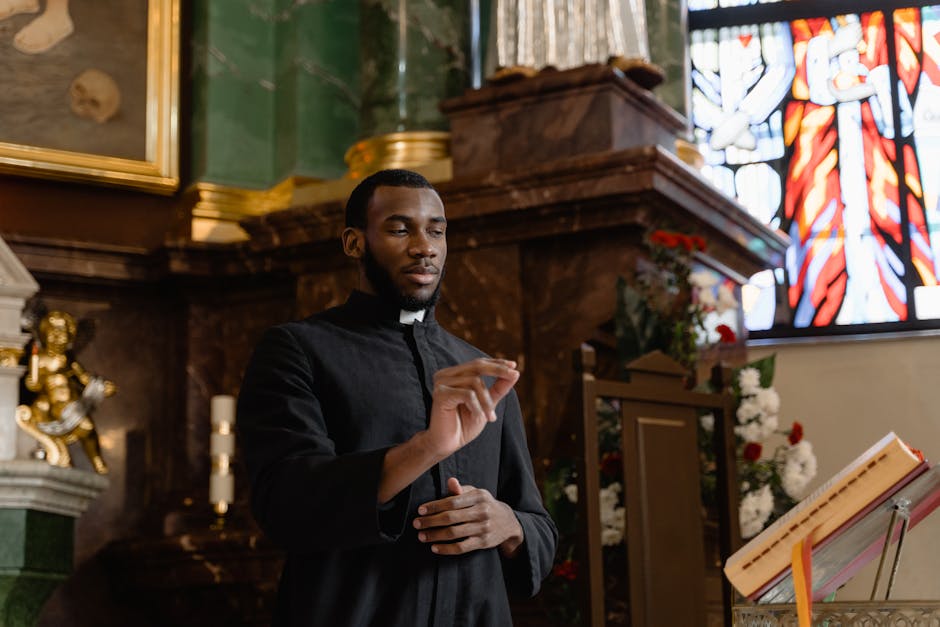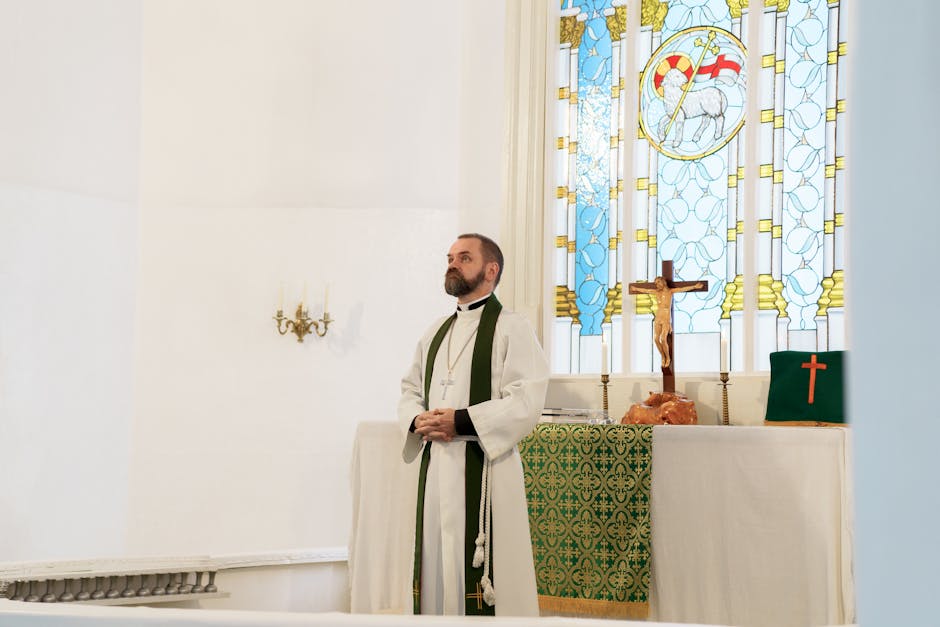Rooted in the Word, Open to the World
A vibrant Catholic life is built on two inseparable pillars: a deep, prayerful encounter with Sacred Scripture and a courageous, charitable engagement with the world’s most pressing moral questions. One fuels the other, creating a faith that is both deeply personal and profoundly public.
Our life in Christ is a journey, one that begins in the quiet of our hearts but is meant to be walked out in the noisy streets of the world. Just as the disciples on the road to Emmaus found their hearts burning within them as Jesus opened the Scriptures, we too are called to an encounter with the living Word. This encounter is not meant to be a private consolation. It is the fire that warms us, the light that guides us, and the nourishment that strengthens us to go out and serve our neighbor with wisdom and compassion.
This journey of faith, therefore, has both an inward and an outward dimension. We are called to till the soil of our souls through prayer and study, and we are called to bear fruit in the world through works of justice and mercy. These are not competing priorities but two rhythms of a single, healthy heartbeat of faith.
The Indispensable Work of Formation
The foundation of any authentic Christian witness is a well-formed mind and heart. Before we can speak a word of truth to the culture, we must first allow God’s Word to speak to us. This is why gathering together to study Sacred Scripture is not a mere academic exercise or a pious hobby; it is essential work for every Catholic. In our homes and parishes, the family of God is called to assemble around the Word, to prayerfully study the Gospels, and to build one another up in the Lord.
When we immerse ourselves in the Infancy Narratives, the Sermon on the Mount, or the parables of mercy, we are doing more than learning historical facts. We are meeting Jesus Christ. We are training our eyes to see the world as He sees it, our hearts to love as He loves. This communal study builds a distinctly Catholic imagination, one that understands the profound dignity of every human person, from the unborn child to the elder, and from the prosperous neighbor to the destitute stranger.
Such a movement of biblical literacy, happening at the grassroots level among families and friends, strengthens the domestic church and revitalizes our parishes. It equips us to become disciples who are not only hearers of the Word but confident, joyful doers of it.
Be doers of the word and not hearers only, deluding yourselves.
Jas 1:22
From a Formed Conscience to Principled Action
A faith nourished by Scripture cannot remain silent or inactive in the face of human suffering. The same Lord who taught us on the mountaintop also healed the sick, fed the hungry, and welcomed the outcast. Our study of His life compels us to engage the complex realities of our own time with both courage and prudence. One of the most challenging issues today is migration, which often pits principles of national security against our moral duty to the vulnerable.
Here, the Church offers a model of principled dialogue, urging a path that avoids simplistic, partisan solutions. The Holy See consistently articulates a balanced approach, affirming two truths simultaneously. First, every sovereign nation has the right and the duty to protect its borders for the sake of the common good. Second, every human person, regardless of their legal status, possesses an inviolable dignity that must be honored. This means there is a corresponding moral obligation to offer refuge and aid to those genuinely in need, rejecting any policy that treats human beings as disposable commodities.
This “both-and” approach is a hallmark of Catholic social teaching. It refuses to collapse the tension between justice and mercy. Instead, it calls us to a higher road: one that pursues security without sacrificing compassion, and one that defends the integrity of the family and the formation of youth as essential pillars of a healthy society. This is the difficult but necessary work of applying the Gospel to our public life.
For I was hungry and you gave me food, I was thirsty and you gave me drink, a stranger and you welcomed me.
Mt 25:35
Putting Principles into Practice
Living out this integrated vision requires intentional habits. It means learning to think with the mind of the Church and to act with the heart of the Good Shepherd. The following table offers a framework for translating these foundational principles into concrete actions in various spheres of life.
| Practice | Where to Apply | Why It Serves the Common Good | First Small Step |
|---|---|---|---|
| Listening Before Speaking | Family discussions, parish meetings, social media interactions | Fosters charity and understanding, preventing the polarization that harms community life. | In your next debate, ask a clarifying question before stating your own opinion. |
| Balancing Mercy and Justice | Business policies, personal charity, civic engagement | Upholds both the dignity of the person and the integrity of the community’s structures. | Read the Catechism’s section on social justice to understand the Church’s integrated vision. |
| Defending Human Dignity | Workplace conversations, online comments, daily errands | It is the non-negotiable foundation of a just society and a witness to our belief that all are made in God’s image. | Make a conscious effort today to thank someone whose labor is often taken for granted. |
| Forming Community with God’s Word | Family prayer, parish small groups, friendships | Strengthens the domestic church and the parish, which are the essential building blocks of society. | Invite one friend or family to read and discuss the upcoming Sunday Gospel with you. |
| Prudent Dialogue | Political conversations, community planning, ecumenical gatherings | Builds bridges and seeks authentic solutions rather than ideological victories. | Seek out the perspective of someone you disagree with and try to articulate their position fairly. |
A Checklist for an Integrated Faith
Here are a few ways to begin weaving a life of study and a life of action together:
- Schedule fifteen minutes this week to prayerfully read a chapter from one of the Gospels, asking God how it applies to your life.
- Identify one area in your local community where vulnerable people are overlooked and learn about the Catholic response or ministry serving them.
- Initiate a conversation with your family about how your household can better practice the spiritual and corporal works of mercy.
- As a business leader or employee, review a company policy through the lens of Catholic social teaching on the dignity of work and the worker.
- Commit to praying daily for national and international leaders as they navigate complex moral and political challenges.
As we look to the future, the path of a faithful Catholic is clear. It is a pilgrimage sustained by the bread of God’s Word and marked by a steadfast commitment to the common good. It requires us to be people of deep prayer and thoughtful action, capable of bringing the light of the Gospel into every corner of society. This is not about having every political answer, but about having a heart conformed to Christ—a heart that beats with love for God and for every neighbor we meet along the way, from our own family members to the stranger at our gate.




